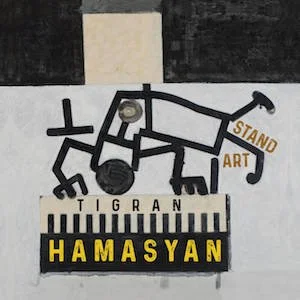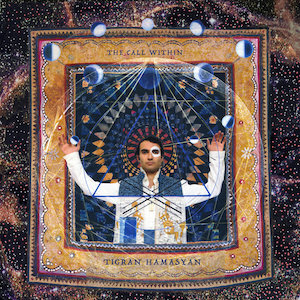Label: Nonesuch Records, 2022
Personnel - Tigran Hamasyan: piano; Matt Brewer: bass, Justin Brown: drums; Mark Turner: tenor saxophone (#3); Joshua Redman: tenor saxophone (#4); Ambrose Akinmusire: trumpet (#7,8).
The resourceful Armenian-American pianist and composer Tigran Hamasyan commands a recently formed trio featuring bassist Matt Brewer and drummer Justin Brown. The new album trades in intricate, state-of-the-art originals for acoustic renditions of jazz standards. To spice things up, he invites prominent horn players to join him in a selection of tunes delivered whether in duo or quartet format.
The flavors are fabulously diverse, and the album, aptly titled StandArt, starts off with “De-Dah”, a sympathetic hard-bop number composed by pianist Elmo Hope and made famous by the brilliant trumpeter Clifford Brown in the ‘50s. The odd-metered trio version we find here denotes an incredible rhythmic control and improvisatory stamina. The chilled-out take on “I Didn’t Know What Time it Was” is also delivered in trio, but Hamasyan lends a more vibrant rock muscularity packed with submerged hooks on “Softly as in a Morning Sunrise”. His improvisations are constructed around the mood of the tunes, but on “Laura”, he defies this idea by turning David Raskin’s ballad into pure rhythmic ecstasy.
The contemplative, dreamy ambience of the re-harmonized “All the Things You Are”, a duet with Mark Turner, is fully embraced by the saxophonist, whereas Joshua Redman projects his supple tenor lines over the swinging excitement of Charlie Parker’s “Big Foot”. Here, Hamasyan shows how refined his jazz idioms can be.
The extraordinary trumpeter Ambrose Akinmusire steals our attention in two pieces: “I Should Care”, an intimate duet with the pianist in which their wistful sounds overlap, blend and spill into each other; and “Invasion During an Operetta”, a quartet improv bathed in abstraction.
With jazz tradition as its point of departure, this is a different Hamasyan recording. It’s definitely not a tour de force like the previous The Call Within (2020), but is still demonstrative of the boldness so intrinsically linked to this pianist’s work.
Favorite Tracks:
01 - De-Dah ► 04 - Big Foot ► 07 - I Should Care






